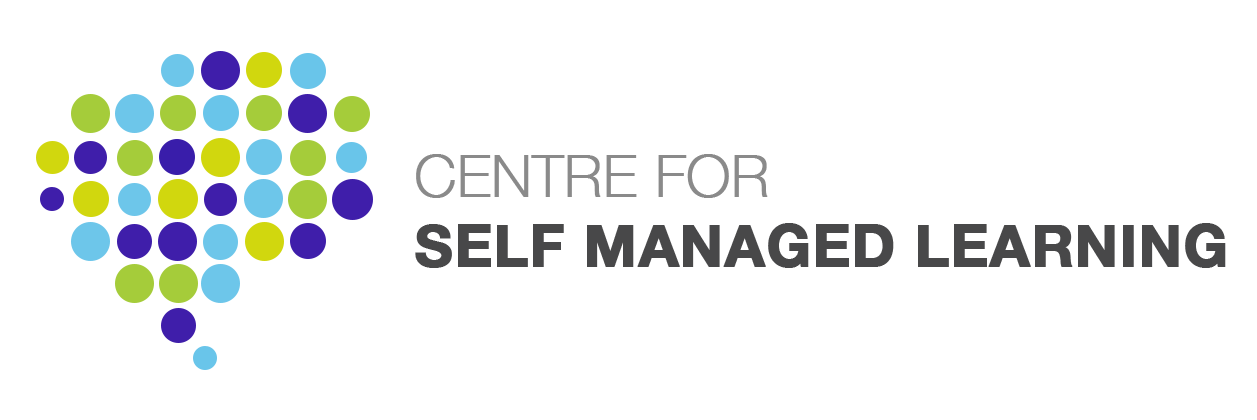The Self Managed Learning Programme was piloted in South Harringay Junior School in the Summer and Autumn Terms 2006. The learning group had six students with a learning group adviser and co-adviser. Within the school the member of staff received training as the learning group co-adviser so that the school would become self-sustaining in this approach. The learning group generally met every two weeks. The learning group was a space for each student in the group to explore a range of issues relating to their learning and develop their skills towards working in a learning group.
The Head Teacher selected a challenging group of students from Year 3 (seven/eight year olds) who were informed about the Programme in a meeting with their parents and given the opportunity to volunteer. All the students selected decided to volunteer and the feedback from parents was generally very positive. The group met fortnightly in the learning mentor’s room which is in a building separate from the main school building.
There was also an adult group launched at a similar time and consisting of teaching assistants and classroom teachers. Having adult experience of learning groups furthers the sustainability of the approach within the school.
What Went Well
Ground rules were established by the group. These were about how they wanted to function together:- listen, be safe, be calm, don’t laugh at people, be polite. They were always a successful point of reference for the group. Lifelines were done in a basic form. This means the story of their lives so far (in as much detail as they wish to give. Full attention to these lifelines was given by the group. Self-portraits were undertaken and positive feedback of this was given by each group member. From their experience of the first session the group realised they needed to work together in order to achieve things or ’get things done’.
The group undertook a small number of worksheets which were mainly to provide a stimulus for self-initiated work and to move them towards the notion of plan/do/review opportunities. The group participated in a wide variety of learning experiences using resources available in the room at the time such as treasure hunts, sculptures, collages, planning a fashion show, board games, construction, sketching and handicrafts. The students were on task for longer periods of time and interacted with increasing competence.
The group were faced with a number of difficult situations e.g. a member of the group ‘snatching’ fruit and water at snack time. The group dealt with this situation very positively as the participant agreed to the decision of the group. Also one group member was chewing gum and stickers were snatched. Again the group used its power to regulate the behaviour by challenging it according to the ground and school rules, then offering alternative suggestions on how the person could handle it better.
As the Programme progressed, the group members had more clarity and skills to deal with focusing on the goal of one particular person and supporting (and sometimes challenging) it. At all times, the understanding is the group ‘supports the person, but sometimes challenges their behaviour if the latter is inappropriate’. Below are three examples of how the students gave their support.
Dance Workshop
One member of the group was interested in what might be involved in becoming a pop star and wanted to improve her dance moves, so two Year 6 girls were invited to coach the student through a routine to give her new ideas and feedback. The rest of the group agreed to support her with this by participating in the routine as well. This was a challenge for the two older girls in a ‘teaching’ role, but also a beneficial learning opportunity for them. The other interesting point to mention is that the rest of the group were completely involved and ‘on task’ even though they had not been particularly interested in the experience other than to support the student. Also there was a tremendous sense of achievement by all the children as a successful routine was performed by all of them. Constructive feedback was given by the group to the Year 6 girls and vice versa which furthered the potential learning experience as self and group evaluation took place.
Athletics Workshop
An athletics coach was requested from Haringey and Enfield Athletics Club to do a workshop on running skills as one group member wanted to take up running seriously. The group gave support to the interested student as they formulated useful questions to ask the coach. Again all members of the group participated in the workshop and learning opportunities were embraced by all the students in the learning group. From this workshop, the group were keen to run a workshop themselves using the teaching points they had learnt from the coach.
Art Workshop
One student was interested in being an artist and so a workshop was set up on this. The artist who worked with the group gave useful information about the profession and then the group had a practical experience doing watercolour paintings. Again, the group gave support and also benefited from the learning experience.
What Was A Challenge?
The participants were challenged by taking control of the Programme at first and needed reinforcement of listening skills and communication skills. These activities were experienced initially more in pairs work. Also they started to work on self-initiated tasks in pairs as this was a more comfortable and manageable dynamic for them.
The process does take time and, particularly with this group being so young, more structure was necessary than would usually be there with an older group. Focus and clarity about the future can be difficult, so looking into the future at a number of options was challenging for this group. However, in time, as the new learning opportunities are experienced, creative possibilities can develop with them.
The Way Forward
The Head Teacher continued this group of Year 4 students because of the successful experiences they have had on the programme so far. The ground rules have been firmly established, self esteem is growing and interaction within the group is continuing to improve. They understand the democratic nature of the group and that each member is equally valued and has an equal right to time, focus etc.
There are a number of possibilities to develop the learning community within the School further through this Programme and some of them have been illustrated already. Other students are a tremendous learning resource within a school, as are the parents and individuals in other schools in the area and the wider community. However, the greatest learning opportunities on this programme are from each other as they understand and support one another in living the life they want to lead.
Comments By The Group
- We are always a team
- We help each other
- We share ideas with each other
- We share our equipment
- We are like a family
- We work together

